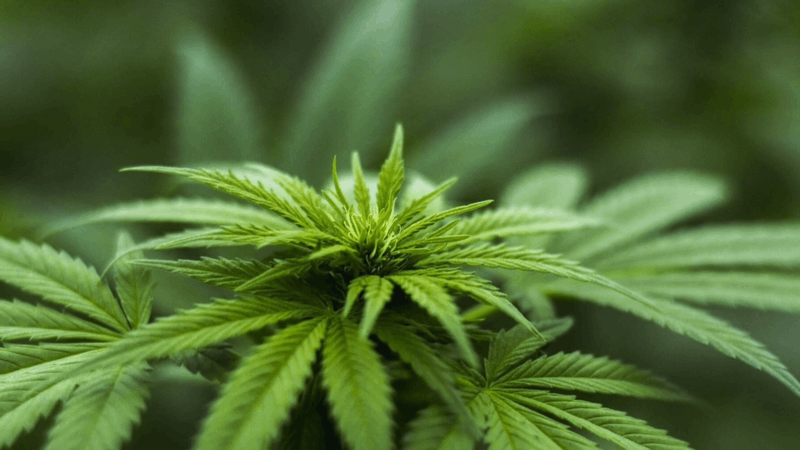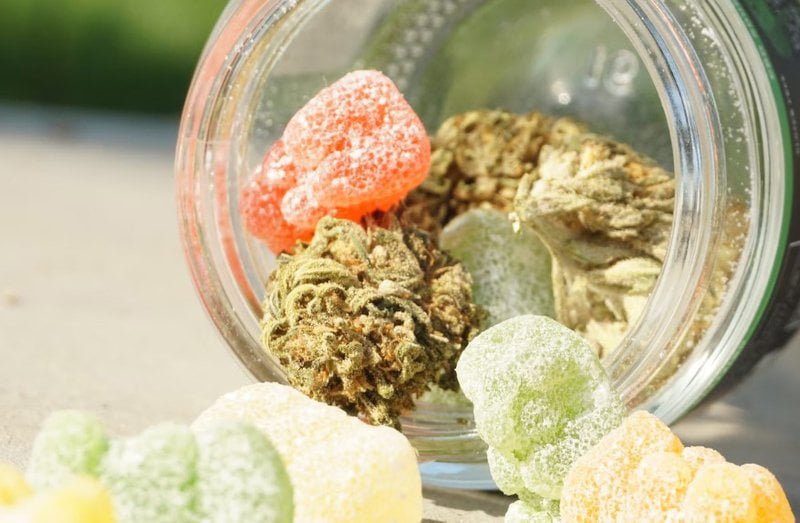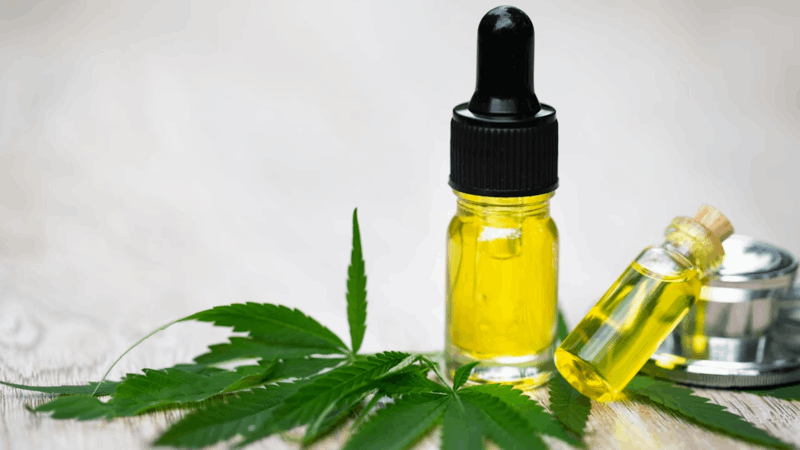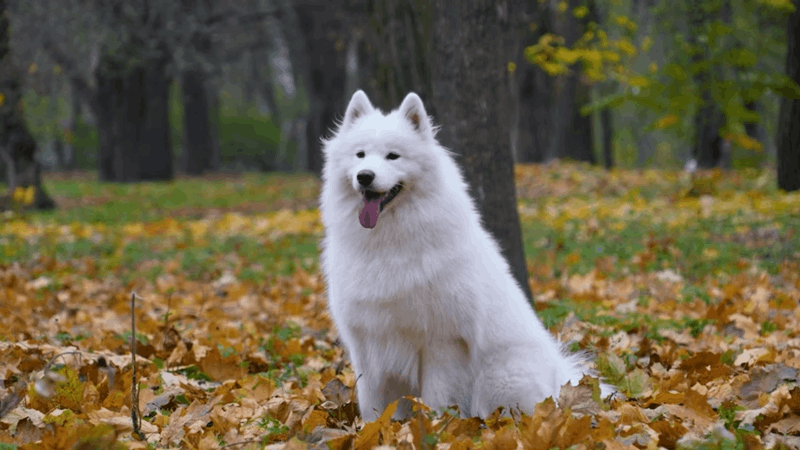No products in the cart.
When the benefits of CBD gain traction in pet care, CBD edibles for dogs have emerged as a natural and holistic approach to promoting furry friend’s well-being. As pet owners seek effective solutions for managing anxiety, pain, and other health concerns, CBD-infused treats offer a convenient and appealing option.
In this blog, we delve into the world of CBD edibles for dogs, exploring their potential benefits, dosing considerations, and best practices for safe administration. Unlock a new realm of canine care with CBD edibles – a treat that nurtures both body and spirit.
Can Dogs Have CBD Edibles?

CBD and dogs can have a positive relationship when it comes to CBD edibles. Dogs can consume CBD edibles, but it’s crucial to exercise caution and consult a veterinarian before introducing them to your pet’s diet. CBD is believed to have potential benefits for dogs, such as reducing anxiety and managing pain. Dogs cannot use all CBD products, and dosing might be challenging.
CBD edibles specifically formulated for pets are preferred, as they often have lower concentrations and avoid potentially harmful additives. Always prioritize your dog’s safety and well-being by seeking professional guidance before incorporating CBD into pets routine.
Benefits of Dogs CBD Edibles
CBD edibles for dogs are gaining attention for their potential benefits in promoting canine well-being. Some potential benefits of CBD edibles for dogs include:
- Anxiety and stress relief: CBD may help alleviate anxiety and stress in dogs, especially in situations like separation anxiety, thunderstorms, or visits to the vet.
- Pain management: CBD’s anti-inflammatory properties might help manage pain from conditions like arthritis or injuries, enhancing your dog’s comfort and mobility.
- Seizure control: It has been demonstrated that CBD edibles for dogs can lessen the number and severity of seizures brought on by epilepsy in dogs or other seizure disorders.
- Appetite stimulation: CBD edibles might be helpful when a dog’s appetite is being reduced by a condition or a medication.
- Anti-nausea effects: CBD edibles for dogs might help alleviate nausea and vomiting, making it beneficial for those with gastrointestinal issues or undergoing treatments that cause nausea.
- Skin and coat health: CBD’s anti-inflammatory properties may contribute to healthier skin and coat by addressing conditions like allergies, itching, and irritation.
- Improved sleep: CBD may promote better sleep patterns in dogs, leading to improved overall health and behavior.
- Behavioral support: CBD edibles for dogs might assist in managing certain behavioral issues like excessive barking, aggression, or compulsive behaviors.
- General well-being: CBD could contribute to a sense of calm and balance, enhancing your dog’s overall quality of life.
It’s crucial to remember that while many dog owners have reported favorable results from CBD edibles, personal reactions may differ. Consult a vet before adding CBD to your dog’s regimen to ensure proper dosage and address any possible interactions with other medications or medical issues. To protect your dog’s safety and wellbeing, always buy high-quality CBD products made particularly for pets and pay close attention to how they respond.
The Side Effects of CBD Edibles for Dogs
Despite the fact that CBD edibles for dogs are typically regarded as harmless, there may still be unwanted effects, especially if not utilized properly.
- Dry mouth: Your dog may have a dry mouth and increased thirst as a result of CBD’s potential to cause a reduction in salivation.
- Sedation: In some cases, CBD edibles for dogs may cause drowsiness or sedation. While this can be beneficial for dogs with anxiety or sleep issues, excessive sedation might interfere with their daily activities.
- Lowered blood pressure: There has been evidence that CBD temporarily lowers blood pressure. This can cause problems if your dog is already taking medicine for low blood pressure.
- Upset stomach: Some dogs may experience digestive issues like vomiting or diarrhea after consuming CBD. Starting with a low dose and gradually increasing it can help minimize this risk.
- Interaction with medications: CBD can interact with certain medications, especially those processed by the liver. To ensure there won’t be any harmful interactions please consult a veterinarian if your dog is on any other medications.
- Allergic reactions: While rare, some dogs might be allergic to components of CBD products or additives in edibles. Monitor carefully allergy symptoms like itching, swelling, or difficulty breathing.
- Changes in behavior: CBD is often used to manage behavior issues, however, in some circumstances, it may result in behavioral changes including increased anxiety or restlessness.
- Gastrointestinal distress: If the dosage of CBD is too high for the first time, dogs might experience an upset stomach or discomfort.
- Tolerance or sensitivity: Over time, some dogs might develop a tolerance to CBD, requiring adjustments to the dosage. Additionally, different dogs may respond differently to the effects of CBD.
To lessen the possibility of these side effects, consulting your veterinarian before giving CBD edibles for dogs is necessary. Start with a low dose, observe how your dog responds, and gradually increase the dosage as needed while monitoring for any adverse reactions. To guarantee security and efficacy, premium pet-specific CBD products are advised. If you notice any concerning side effects, consult your veterinarian promptly.
CBD Edibles for Pain: Is It a Good Pain Relieve?
CBD edibles for dogs are being explored as a natural alternative to traditional pain medications. The following are some potential advantages of CBD edibles for dogs with pain relief:
- Anti-Inflammatory effects: Inflammation is frequently a cause of pain in illnesses like arthritis, and CBD may help lower inflammation.
- Modulating pain perception: CBD might influence how the brain perceives pain, potentially leading to reduced sensitivity to painful stimuli.
- Neuropathic pain relief: CBD’s interaction with the endocannabinoid system could have a positive impact on neuropathic pain, which is caused by nerve damage.
- Limited side effects: CBD is thought to have fewer and milder adverse effects than some prescription painkillers.
A veterinarian should be consulted before taking CBD edibles for dogs with pain management. The vet may advise you on dosage and can monitor your dog’s response to the medication in addition to determining whether CBD is a suitable option for your dog’s pain management. It’s also crucial to discuss any potential interactions with the vet if your dog is already receiving any extra pain drugs in order to safeguard your pet’s safety and health.
How to Give Dog Edibles CBD?

To give your dog CBD edibles, follow these steps for safe administration. To establish the right dosage based on the weight and health of your dog, speak with your vet first. Choose high-quality CBD edibles made specifically for pets. Begin with a low dose and gradually increase it as needed, while closely monitoring your dog’s response. Administer the CBD edibles with a small amount of food to aid digestion. Maintain a consistent schedule and dosage. Regularly assess your dog’s well-being and consult your vet for any concerns.
Remember, every dog is unique, and their response to CBD can vary. Work closely with your veterinarian to decide the best method for adding CBD edibles into your dog’s routine in order to put their safety and wellbeing first.
Can Create CBD Edible for Dogs at Home?
An instruction manual for creating CBD edibles for dogs is provided below.
- Preparation: Make sure you have a clean and safe workspace while gathering all the necessary supplies and equipment.
- Calculate dosage: Determine the appropriate CBD dosage for your dog based on their weight and the concentration of the CBD oil or tincture you have. If you’re unclear of the dosage, talk to your veterinarian.
- Choose safe ingredients: Select dog-safe ingredients for your treats. Opt for ingredients that are generally well-tolerated by dogs and avoid any known allergens.
- Prepare CBD oil: If using CBD oil or tincture, measure out the required amount based on the dosage you calculated.
- Mix ingredients: Combine the selected ingredients in a mixing bowl. If needed, you can add flavor additives that are safe for dogs.
- Incorporate CBD: Gradually add the CBD oil or tincture to the mixture. Mix thoroughly to ensure an even distribution of CBD throughout the mixture.
- Shape and form: Shape the mixture into small treats using your hands or molds. You can use cookie cutters or roll the mixture into bite-sized shapes.
- Baking (Optional): If the treats need to be baked, follow the recommended baking instructions. Be sure to monitor the treats closely while baking to prevent overcooking.
- Cooling: Allow the treats to cool completely before handling or giving them to your dog. Cooling helps the treats set and harden.
- Dosage control: To ensure consistent dosing, divide the total amount of CBD used by the number of treats you’ve made. This will give you the CBD dosage per treat.
- Storage: Store the treats in an airtight container in a cool, dry place. Label the container with the dosage information to ensure proper administration.
- Monitoring: Take note of how your dog responds to the edibles. Observe any changes in behavior, energy levels, or overall well-being.
- Adjustments: Based on your dog’s reaction, you may need to adjust the dosage for future batches. Consult your veterinarian if you’re unsure about making adjustments.
Never forget that your dog’s health and safety come first. Prioritize their well-being by consulting with a veterinarian before introducing homemade CBD treats into their diet. Additionally, only use CBD products specifically formulated for pets and ensure you’re using safe ingredients that are suitable for dogs.
Dog Ate THC Edibles: What to Consider?
It’s critical to act quickly to protect your dog if they’ve unintentionally consumed THC edibles or any cannabis-related goods. Dogs that use THC may experience negative side effects, thus caution is advised to avoid any potential issues.
- Assess the situation: If you think your dogs have eaten THC edibles, attempt to figure out how much and what kind of product they took in. This information will be helpful for your veterinarian in assessing the potential risk.
- Observe symptoms: Keep a close eye on your dog for any signs of THC toxicity. Lethargy, confusion, drooling, vomiting, diarrhea, unsteadiness, trembling, a raised heart rate, and in severe cases, seizures, may all be symptoms.
- Contact a veterinarian: If your dog is exhibiting symptoms of THC intoxication, get in touch with your vet or an emergency veterinary hospital immediately away. Inform them about the situation and any relevant details.
- Be honest: When speaking to the veterinarian, be honest about the circumstances. Give precise specifics regarding the type of edible, any potential THC content, and any other pertinent information.
- Treatment: Your veterinarian may advise inducing vomiting, using activated charcoal to decrease absorption, and giving supportive treatment, such as intravenous fluids, depending on the severity of the symptoms and the quantity of THC consumed. Severe cases might require hospitalization.
- Stay calm: While seeing your dog in pain can be upsetting, it’s important to maintain your composure and heed the doctor’s instructions. Panicking can hinder clear decision-making.
- Prevent future incidents: Ensure that THC edibles and any cannabis products are kept securely out of reach of your pets. Dogs are curious and may be attracted to the scent of edibles.
- Monitor recovery: Even after treatment, it’s important to monitor your dog’s recovery closely. Follow any post-treatment instructions provided by the veterinarian and seek further assistance if necessary.
Remember that THC can affect dogs differently than humans, and even small amounts can be harmful. To guarantee the safety and wellness of your dog, quick action and qualified veterinarian care are important.
CBD Edibles for Dogs and CBD Gummies for Dogs: the Difference

CBD edibles and CBD gummies for dogs are both types of products designed to deliver the potential benefits of CBD to dogs. However, they differ in their formulation, presentation, and intended use.
| Aspect | CBD Edibles for Dogs | CBD Gummies for Dogs |
| Form | Various forms (treats, chews, capsules) | Specifically gummy candy form |
| Presentation | Tailored for dogs’ preferences and needs | Resemble typical gummy candies |
| Ingredients | Designed with dog-friendly ingredients | Ingredients suitable for dogs |
| Flavor Options | Often available in flavors dogs like | May have a variety of flavors |
| CBD Concentration | Typically formulated for pet dosages | Designed for pet dosages |
| Dosage Accuracy | May have precise dosage per unit | May have varying dosage per gummy |
| Labeling | Clearly labeled for pet use | Clearly labeled for pet use |
| THC Content | Generally low or non-existent THC | Generally low or non-existent THC |
| Purpose | Specific to addressing pet issues | General CBD supplementation option |
| Target Audience | Geared towards pet owners and their dogs | Geared towards pet owners and their dogs |
| Dosing Instructions | Clear dosing guidelines provided | Dosing guidelines may be included |
| Convenience | Convenient for administering CBD | Convenient and easy to give |
| Availability | Available from pet stores or online | Available from pet stores or online |
| Veterinary Consult | May still require consultation with vet | May still require consultation with vet |
It’s important to note that while both CBD edibles for dogs and CBD gummies for dogs are intended for pets, the primary difference lies in the specific formulation and presentation tailored to dogs’ needs. Always ensure you’re using products that are explicitly labeled for pets and consult your veterinarian before introducing any new supplements or treats into your dog’s routine.
Conclusion
CBD edibles for dogs offer a promising avenue for enhancing your canine companion’s well-being. These specially formulated treats provide a convenient and enjoyable way to administer CBD, potentially helping to manage pain, anxiety, and various health concerns. However, it’s crucial to prioritize your dog’s safety by consulting a veterinarian before introducing CBD edibles into their routine.
Hello, I am Hazel Bennett, an experienced copywriter specializing in the fascinating topic of CBD for dogs. With a passion for pet wellness and extensive knowledge of CBD’s potential benefits, I am here to provide you with informative and engaging content.




I think this is a real great post. Awesome.